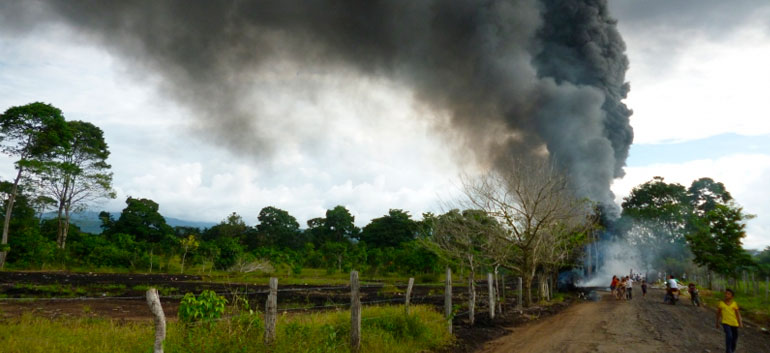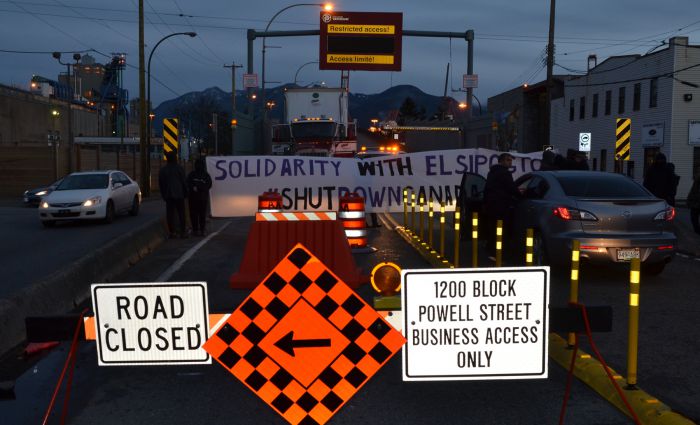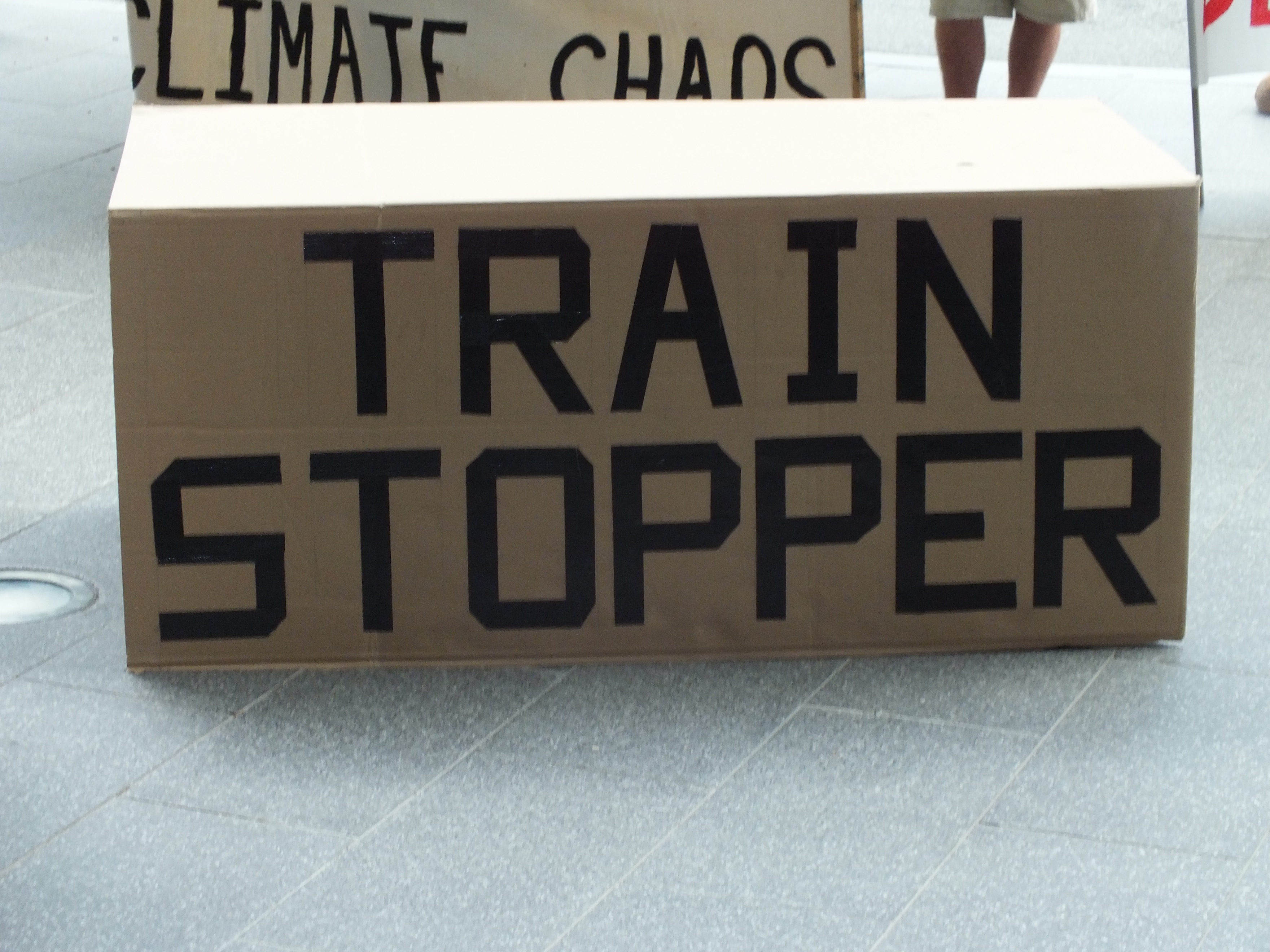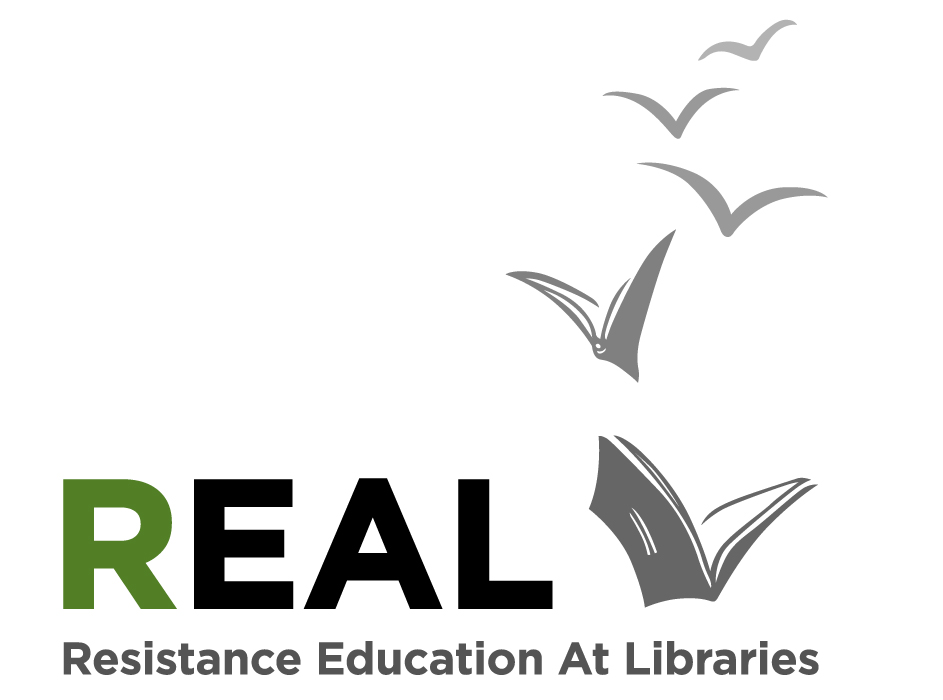by Deep Green Resistance News Service | Jan 6, 2014 | Defensive Violence, Property & Material Destruction, Repression at Home, The Problem: Civilization
By The Women’s Coordinating Committee for a Free Wallmapu
What can only be described as an act of defiance against the State of Siege imposed by the Chilean State was carried out this morning (December 31st), against the Chilean occupation and its Capitalist plunder in the province of Malleco.
The events took place nearby the town of Angol, a small distance away from a police station. It involved the complete arson of a helicopter belonging to Mininco Forestry Inc, and the partial damage of another.
The events also included the alleged assault of a police officer, who was subdued by the “assailants,” according to various media reports.
We should remember that the Chilean government had ordered more police presence to Mapuche territory, in which several reinforcements were brought from various parts of the country. This also included the use of surveillance planes, or drones, with infrared cameras and heat detectors, in order to control and monitor the movement in the area, especially at night.
Nothing worked; the permanent police presence used to prevent unidentified people from entering site proved to be a dismal failure. A private contractor is used to maintain planes and other equipment for Mininco Forestry Inc, where the two planes were set on fire, destroying one and damaging the other.
Second Helicopter Attack in the Area
This is the second time that Forestry planes have been targeted in the area of Malleco. An earlier incident included a helicopter that was shot in a rural area of Ercilla.
Forestry Companies: The Ugliest Face of Capitalism in Wallmapu
The forestry companies represent the worst aspect that Capitalism has shown to Mapuche community members in Wallmapu. Their extreme extractive activities have only generated disaster for communities, including toxic fumes, the disappearance of rivers, brooks and streams, as well as the extinction of the natural flora and fauna of the area which serve as food and medicine for the Mapuche People. These are the main effects, among others, of the industry financed by the Chilean State through Law 701.
Moreover, the enormous extensions of land currently held by the Forestry companies lie on stolen land from Mapuche communities. These corporate properties are directly related to the territorial plunder of the Mapuche People.
Three Families against a People
This business not only is targeted against the Mapuche People; it also excludes the thousands of Chileans that have maintained this industry through subsidized taxes for the last 20 years. The property concentrated by the forestry industry lies in the hands of only three families: Angelini, Matte and Carey, whom own companies such as Bosques Arauco, CMPC and Masisa respectively.
Bosques Arauco alone encompasses almost 1.2 million hectares, with Mininco Forestry Inc at 700,000 hectares, which does not include the many uncertified estates in the area.
According to an official report, the forestry companies posses almost three million hectares in southern Chile – in other words – Wallmapu. This accounts to almost 30% of our traditional Mapuche Territory [south of the Bio Bio River], in comparison with only 700,000 hectares held by Mapuche communities, accounting for only 7% of traditional territory.
From Warrior Publications: http://wccctoronto.wordpress.com/2013/12/31/mapuche-resistance-defies-the-state-of-siege/

by Deep Green Resistance News Service | Jan 4, 2014 | Colonialism & Conquest, Property & Material Destruction
By Andrew Wight & Taran Volckhausen / Colombia Reports
Colombia’s second largest rebel group the ELN detonated explosives Wednesday at four crude oil holding pools along the Caño Limon – Coveñas pipeline in the state of North Santander.
A large blaze caused by the attacks created panic in the local population, who were forced to flee their homes, according to local media reports.
Authorities were taking measures to prevent further environmental damage after the attacks as well as reconstruct the damaged holding pools.
The attack marks the first attack by the ELN in 2014, although the rebel group has been coordinating attacks on Colombia’s oil production infrastructure for the past few months, declaring war against multinational oil companies operating in the country in November.
In a statement released on the ELN website Tuesday, Colombia’s second largest guerrilla group declared war on the multinationals and oil companies “plundering” the country’s natural resources.
The ELN’s Eastern War Front Commander, Manuel Vasquez Castaño, confirmed that a slew of recent attacks directed at Colombia’s oil infrastructure have been intended to hurt the pockets of multinationals active in the country.
Once again, we reaffirm our belligerent stance to confront multinationals and their repressive apparatus: the plunderers and exploiters of natural resources,” he said. “Colombia is a colony of North American imperialism — bourgeois elites in power sold to the highest bidder and in the name of democracy deliver natural resources to their Yankee masters.
The statement went on to discuss the high prices of Colombia’s internal combustible market, which lead to nationwide strikes in the trucking sector this past summer and have been sited by farm organizers involved in ongoing negotiations with the government as a reason for the financial insolubility of the agricultural market.
“We are one of the top oil-producing countries worldwide,” said Vasquez, “but Colombia has (some of) the world’s most expensive gasoline.”
The rebel group has asked for broad talks along the lines of the peace deal currently being negotiated in Havana, Cuba between government officials and the FARC, Colombia’s largest rebel group.
But despite agreeing to initiate the process, the Colombian government has yet to reach out to the ELN central command, which has repeatedly called for the start of discussions, and recently launched an offensive against oil and gas pipelines in rural Colombia, in what is believed to be a measure to pressure the Colombian government into talks.
Despite the ELN’s efforts, Colombia’s state-owned Ecopetrol oil company reported a net profit of $2.05 billion in the third quarter of 2013 and record levels of oil production.
The Colombian government has yet to respond to the ELN’s most recent announcement, and hasn’t indicated that any plan to develop talks will be forthcoming.
The ELN, which continues to employ the anti-capitalist rhetoric of its origins as a Catholic-Marxist revolutionary group, has since become dependent on the illicit mining and gold trade, running operations throughout the country that exploit Colombia’s rural poor and generate sizable revenue streams for the group’s other activities.
From Systemic Capital
by Deep Green Resistance News Service | Dec 17, 2013 | Education, Mining & Drilling
By Deep Green Resistance Great Basin
It sounds like a bad business plan: Las Vegas is planning a $15 billion project to extract water from the driest places in the country. Ranchers, farmers, indigenous and rural communities, hunters, and
environmentalists are coming together to oppose the project, and clean air activists from Salt Lake City are worried that the project might cause major dust issues in the valley.
Join community organizers Saturday, January 11th at the downtown library in Salt Lake City to learn more about the so-called “Water Grab” – the project that is the epitome of unsustainable development and massive public subsidy to the rich. Despite a recent court ruling that deals a major blow to the project, opposition continues as SNWA will not give up on their desperate gamble.
Prepare to learn about the burden this project would put on taxpayers, the stunning natural places it would turn into deserts, the communities that would be impacted, and the political scheming going on in Las Vegas to make it happen.
Join us on January 11th to stand up for what is right. We say, “Stop the Water Grab!”
The event will take place at 3pm on Saturday, January 11th at the Downtown Salt Lake City library – 210 E 400 S, in Meeting Room A, downstairs in the main foyer of the library.

by Deep Green Resistance News Service | Dec 2, 2013 | Indigenous Autonomy, Obstruction & Occupation
By Murray Bush / Vancouver Media Co-op
COAST SALISH TERRITORY – Activists blocked access to the federal Port of Vancouver for an hour early this morning as part of an International Day of Action in Support of Elsipogtog Land Defenders in New Brunswick.
Access to the Port at the foot of Clark Drive was blocked for an hour. Traffic was backed up as far as as the eye could see. The adhoc coalition of activists blocked the road with a banner reading Solidarity with Elsipogtog and #ShutDownCanada. The group said it condemns fracking for poisoning water and boosting carbon emissions and decries “the brutality of the RCMP response, and their ongoing collusion with corporate interests.”
“We stand in solidarity with Land Defenders everywhere – from the Mi’kmaq in New Brunswick to the Unis’tot’en in British Columbia – who are fighting rampant and reckless resource extraction, which is the face of modern colonialism. We denounce the assertion that this destruction and the associated corruption, deceit, and violence are necessary. And today we shut down a key piece of the infrastructure of this ideological machine.”
The Mi’kmaq Territory encampment which saw standoff’s between Mi’kmaq peoples protecting water and RCMP protecting corporate interests, requested the global support. More support actions are planned in BC today including rallies in Vancouver and Victoria.
From Vancouver Media Co-op: http://vancouver.mediacoop.ca/photo/elsipogtog-solidarity-action-shuts-vancouver-port/20175

by Deep Green Resistance News Service | Nov 23, 2013 | Direct Action, Protests & Symbolic Acts, Strategy & Analysis
By Ben Pennings / Over Our Dead Bodies
Big Coal? We’re talking the biggest. The Galilee Basin is the biggest proposed coal complex in the world. The numbers are staggering, frightening; well past the point of insanity.
The great news is that the nine mines planned are very marginal economically. The ‘quality’ of coal is low, the price of coal is low, and the debt levels of many companies involved are high. However, a company called Aurizon is planning to bail out the debt-ridden company GVK, allowing them to dig up the first 2 mines. These mines alone would be responsible for carbon pollution 6 times that of the UK.
A broad cross-section of the mainstream environment movement have signalled their intentions towards Aurizon, but thus far been pretty much ignored. Millions of emails have gone unheard. Aurizon continues unabated towards investing billions to mine the Galilee Basin, before solar makes it completely economically unviable.
The Over Our Dead Bodies campaign is adding a new dimension to the decision-making processes of Aurizon, and has garnered significant interest from both the company and police. Aurizon now face sustained direct action and civil disobedience strategies, on top of the increasing pressure from mainstream groups. The campaign is blatantly honest, starting to document the number of activists in Australia and globally who will do whatever it takes to stop Aurizon.
Activists started the campaign by stealing a ‘carbon bomb’ from their offices, visiting the CEO’s mansion (twice) and messing with their football sponsorship. All in one weekend. While also hunger striking! But the real deal is still to come.
How can activists be honest with Aurizon about what may be on the way? Go along to their AGM of course! I was one of twelve activists who bought enough shares to attend and ask questions that were not the usual fare. For the first time in AGM history (as far as we know), activists asked audacious questions to directly challenge a company about the security, insurance, industrial action and recruitment costs related to direct action by environmental activists – providing an honest warning to shareholders of risks the company has thus far refused to disclose.
A multi-organisation protest was also held outside the AGM venue. Police inside and outside the AGM outnumbered protesters two to one – uniformed, plain clothes, photographers and high-ranking officers. Walking from our briefing to the venue, the anti-terrorism police made their presence known, greeting me by name. As did other officers throughout the morning. Nice to be loved! The leading image above shows one of the anti-terrorism police ‘Aaron’ (real name is Bruce) talking to an activist on the day.
Activists know they can’t stop Aurizon’s plans through appealing to their ethics or values. Those who have tried have failed. The chair of the board John Prescott confirmed this belief when answering the first question:
“The fundamental business of this company is transportation, the majority of it by heavy haul rail systems, and a key part of that is certainly the carriage of coal… it is a fundamental part of this company’s business to carry coal for interested customers. It is a perfectly legitimate activity and it is one that to withdraw from would not be in the interest of shareholders, customers, employees, and the communities in which we serve.”
He also admitted to shareholders in this first exchange that Aurizon “have not made any estimates” when asked about the costs of activism by organisations with many millions of members. This is an important admission but the point needed to be laboured. The next question about their security strategies got right to it:
“It seems to me that Aurizon are very vulnerable to direct action strategies from environmentalist groups. Given you have thousands of kilometres of rail line and have difficult to secure facilities around the country, what strategies do you have in mind to secure what seems to be in-securable?”
After questions about climate change, water and the future of coal, it got serious with a question about targeting the board and executives:
“As Aurizon’s planned investment in the coal mines in the Galilee Basin (involves releasing) truly massive amounts of carbon into the atmosphere, threatening life as we know it on this planet, such a radical step calls for a radical response. Are you aware that over two hundred activists from one group alone have thus far committed to use direct action against the Aurizon Board of Executives to remind them of their personal responsibility regarding runaway climate change; and given they claim to have home addresses of most of the board members and senior executives, and considering activists have already visited the CEO’s home twice, are you concerned that executives and board members will leave the company if they are seriously challenged in their homes and neighbourhoods about these responsibilities, their responsibilities beyond Aurizon, responsibilities to the future of all of our children, our grandchildren, the community, country and the world we live in?”
Despite protestations, a further audacious question was asked, this time about stopping trains with cardboard boxes:
“In 2011, an activist stopped a coal train in New South Wales using a lightweight box contraption. Now he was inside that box, but it’s easily conceivable that you could stop a coal train with an empty cardboard box. Now given you’ve got thousands of kilometres of track, how do you envisage oversight over those tracks and managing that; I can see it would be quite easy for activists to stop coal trains and get away with it scot free. So is there a cost each time a train is stopped like this, and have you factored those kinds of costs into your business plans?”
Just by chance, this happened to be outside the building when shareholders left the meeting. 
You can imagine the company (and some shareholders) were not too happy with such questions. The chair of the board said repeatedly that they would not divulge security strategies, but it seemed reasonably clear such strategies did not exist. But the shareholders did respond with applause to the question about coal dust, public health, and the excessive salary of the CEO:
“My question is to Lance Hockridge, CEO, and my concern is about dust. I’ve been reading a bit in the media the last few months about coal dust coming from wagons and about the particles, and the doctors and health experts’ concerns about the dust particles; the larger ones and the smaller ones which can get lodged in the lungs and in the bloodstream and the concern, particularly for children… My question, given that Aurizon has so far refused to cover the coal wagons and that there is quite a bit of public outcry about this issue is, Lance, you earned $6 million more than the average Australian last financial year, would you personally be willing to donate some money to stop the damage to public health, and if not, would you personally live on a railway line and breathe in what you transport?”
That question was bound to be popular but this question hit a different nerve:
“Are you concerned that once environmental activists start direct action strategies that your unionised staff will undertake industrial action due to perceived safety risks? Have you factored in these potential massive costs to your investment in the Galilee?”
A shareholder responded to this, saying she was “absolutely appalled at the suggestion that lives would be put at risk because of ideological beliefs.” I jumped up to defend this activist before question time ended. It is Aurizon in fact who are putting millions of lives at risk over an ideological belief, the belief that profit by any legal means trumps ethical considerations, or a livable planet for that matter. After the AGM some shareholders spoke freely with activists. Many were concerned about climate change, coal dust, and the shortening future of the coal industry. Aurizon have since sent a strongly worded legal letter, threatening a Supreme Court injunction against Generation Alpha, Over Our Dead Bodies and their ‘members’. What a shame that Generation Alpha is a Facebook page, Over Our Dead Bodies is a website, and neither have members! Aurizon write that they are ‘disappointed’ in us, and if we do what they say we’ve threatened, we’re in big trouble! But now they just have to wait and prepare, knowing they can do little to stop the next move by the 221 (and counting) activists who have said “Over Our Dead Bodies”.

by Deep Green Resistance News Service | Nov 18, 2013 | Education
Deep Green Resistance has just updated the REAL: Resistance Education At Libraries project. This easy to use website helps identify libraries lacking our targeted resistance media, and makes it easier to contact each library or “Suggest a purchase” to fill in the gaps. The new updates include an improved user interface, many new libraries from college towns, and libraries in Canada.
REAL initially focuses on three foundational works of the Deep Green Resistance and strategic anti-civ movement:
- Deep Green Resistance by Derrick Jensen, Aric McBay, and Lierre Keith is crucial reading for anyone who has accepted that civilization is destroying the planet, but hasn’t known how to respond. This is the single most useful book to grow our movement of strategically thinking resisters. Deep Green Resistance is a plan of action for anyone determined to fight for this planet — and win.
- Endgame, by Derrick Jensen, gives readers a crash course in anti-civ critique, an excellent and (relatively) succinct summary of what’s wrong with this culture and why. Many people already know this in their bones, but will benefit from Jensen’s eloquence and analysis to help them piece together a coherent big picture. By challenging readers to seriously ask themselves what it will take to make them fight back, and what that might look like for them as individuals and as a movement, this volume builds an important foundation for Deep Green Resistance. This book has awakened and radicalized many people, and has the potential to reach many more.
- Franklin Lopez’ film END:CIV offers a powerful visual introduction to some of Endgame‘s premises and arguments, on which it is based. The movie simultaneously presents some of the worst atrocities of civilization and argues for the necessity of fighting back. It has the potential to reach many people new to anti-civ critique who otherwise might not pick up one of the above books for a “casual” read.
Many people first came to their awareness of the problems of civilization and the need to fight back thanks to these works. Getting them into public libraries will make them more accessible to people who find them by accident, or who seek them out after hearing about Deep Green Resistance and anti-civ activism.
You can help by using the website tools to make suggestions to your local library and to encourage friends and family to do the same. You can also contribute funds to help us donate copies of these media to libraries which can’t afford them from their own acquisition budgets.
To learn more about the project, or to get started, please visit http://deepgreenresistance.org/libraries





